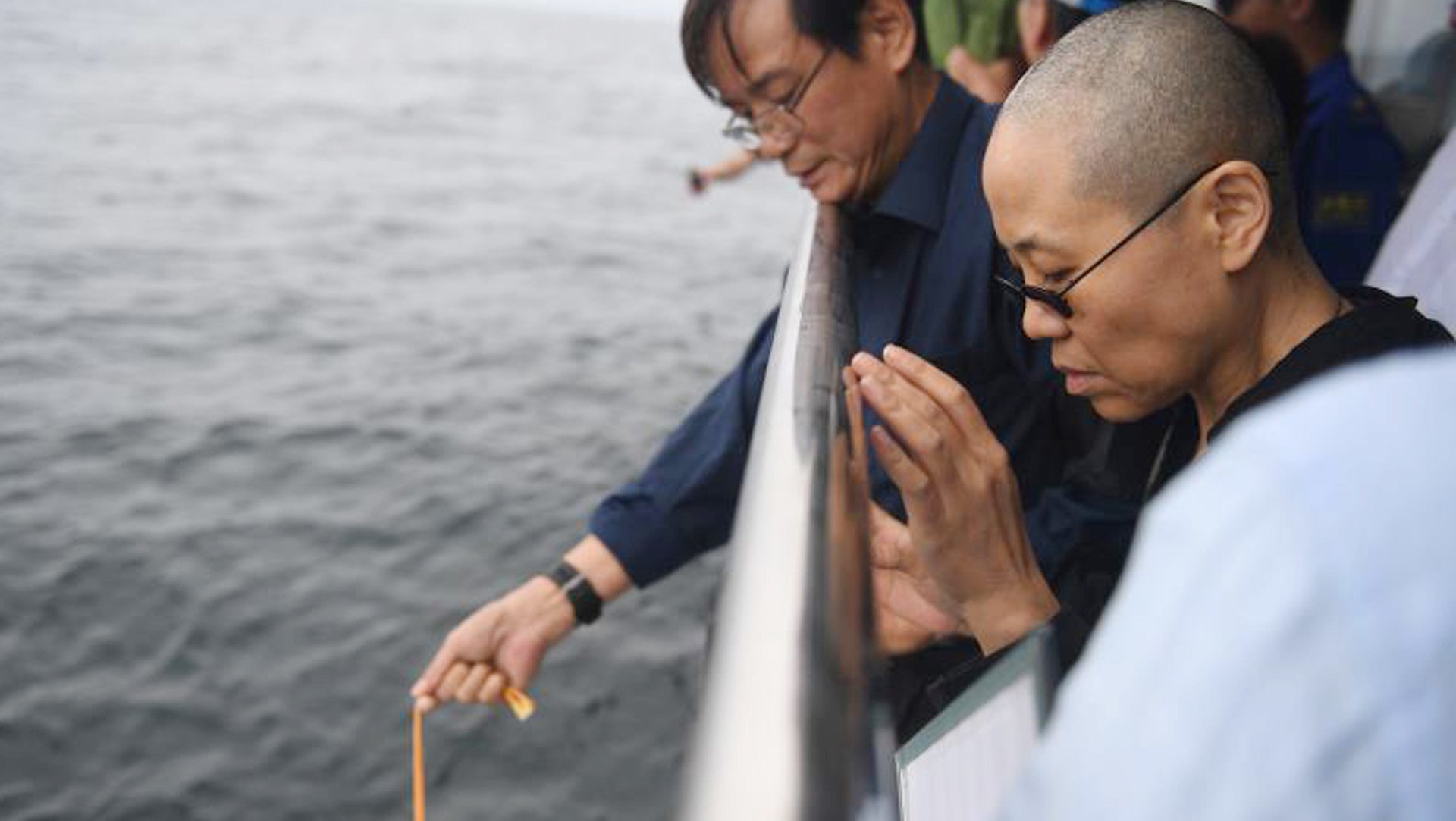China just buried a human rights activist the way the US buried Osama bin Laden
China buried human rights activist Liu Xiaobo July 15 the same way the United States buried terrorist Osama bin Laden, the mastermind of the 9/11 attacks on the World Trade Center and the Pentagon.


China buried human rights activist Liu Xiaobo July 15 the same way the United States buried terrorist Osama bin Laden, the mastermind of the 9/11 attacks on the World Trade Center and the Pentagon.
Liu, a comparative literature professor and dissident who advocated peacefully for two decades for greater freedoms in China, was imprisoned in 2009 for co-writing a manifesto that called for guarantees of human rights and an end to one-party rule. In late June, China announced that he was suffering from late-stage liver cancer and moved him to a hospital. Liu died July 13.
China has made concerted efforts since Liu’s death to curtail efforts to speak about him—and friends say the burial at sea is also meant to prevent him being remembered.
Dissident and family friend Hu Jia told The Washington Post that “authorities are very worried that a grave would be the focal point of the public’s actions to memorialize him, which could easily turn into protests.”
The cremation occurred Saturday morning, with the scattering of the ashes at sea taking place around noon. The burial was followed by a state-organized funeral and press conference. Chinese authorities released photographs of the sea ritual off the coast of Dalian in northeastern China, and the funeral. One of them shows his widow Liu Xia gazing into the waters.
The US took a similar approach for bin Laden, who was buried at sea in 2011. The US was likely motivated both by wanting to prevent extremists from visiting a burial site and by the realization that few countries would be willing to accept his body. According to Department of Defense emails, Islamic rituals were followed, including washing the body and wrapping it in a white shroud. In that case, no photos were released for fear they could incite anti-American violence.
The man whose memory China is trying to control is known for his non-confrontational approach, “almost Gandhian,” writes Perry Link in the New York Review of Books. In one of Liu’s most famous pieces of writing, prepared for his trial, he wrote:
I have no enemies and no hatred. None of the police who monitored, arrested, and interrogated me, none of the prosecutors who indicted me, and none of the judges who judged me are my enemies… Hatred can rot away at a person’s intelligence and conscience. Enemy mentality will poison the spirit of a nation, incite cruel mortal struggles, destroy a society’s tolerance and humanity, and hinder a nation’s progress toward freedom and democracy. That is why I hope to be able to transcend my personal experiences as I look upon our nation’s development and social change, to counter the regime’s hostility with utmost goodwill, and to dispel hatred with love.
Burial at sea doesn’t only take place when countries want to prevent a burial site from becoming a memorial. After his death, the organs of Chinese statesman Deng Xiaoping, architect of its economic reforms, were donated. He was then cremated and his ashes scattered at sea, as he had wished.
Mariners are often buried at sea. The UK allows anyone to seek a sea burial at specific spots. The BBC says that these words from the 19th-century engineer and occasional writer George Bruce are often spoken at British burials at sea:
The sea is the largest cemetery, and its slumbers sleep without a monument… All other graveyards show symbols of distinction between great and small, rich and poor: but in the ocean cemetery, the king, the clown, the prince and the peasant are alike, undistinguishable.